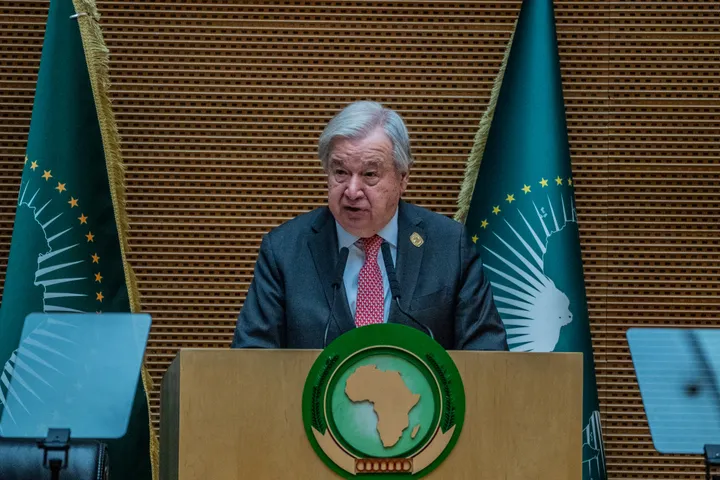The recent nationwide protests in Nigeria against the high cost of living were intended to "effect a regime change", President Bola Tinubu's administration says.
"I do not call them protests, I call them a movement to effect a change of regime by force," Minister of Solid Minerals Dele Alake said at a media briefing after a meeting between President Bola Tinubu, former presidents and other top national leaders in Abuja.
Nigeria's national security advisor, Nuhu Ribadu, had assured the meeting that ''nobody will be allowed to truncate our hard-earned democracy,'' the minister said.
The government did not name any particular group or individuals behind the alleged plot to topple the government.
Earlier this month, Nigeria witnessed days of protests with thousands of people taking to the streets in major cities, including the capital Abuja, to demand action from the government to tackle worsening inflation and other economic hardships.
Some of the angry protesters were heard openly calling on the Nigerian military to take over the government because of the hardships.
The head of the Nigerian military Christopher Musa immediately came out to declare the security forces' support for democracy.
“Nigeria is a sovereign nation. Nigeria is a democratic nation. All security agencies are here to defend democracy and ensure that democracy continues to thrive,” he told journalists on August 5, after a meeting with President Tinubu.
At least 22 people died in the protests, according to Amnesty International, in the protests that fizzled out after they turned violent leading to clashes with security forces in several places, particularly in the north of the country.
Security situation
Tuesday's meeting of the Council of State, which consists of President Tinubu and former presidents as well as other top officials, was briefed by the national security advisor on the country's security situation before, during and after the protests, the minister said.
"The council thanked Nigerians at large for resisting any unconstitutional move to change government. If anybody is not satisfied with the government, there's always an election coming," Alake told journalists.
"Any change of government has to be through the ballot and not through the barrel of a gun or through insurrection or through any other unconstitutional means," he added.
Meanwhile, Nigerian authorities have frozen $37m worth of cryptocurrency linked to organisers of the protests, according to local media reports quoting a court order and officials.
Terrorism financing
The seizure was part of investigations by the Economic and Financial Crimes Commission (EFCC) into money laundering and terrorism financing allegations.
A high court judge in the capital, Abuja, last week issued the order approving the seizure of the amounts held in four separate cryptocurrency wallets, the Premium Times news website reports.
EFCC did not reveal the identities of the wallet owners in its application for the freeze order, the website adds.
Nigeria is experiencing its worst economic crisis in decades. President Tinubu's economic reforms have led to currency devaluation and high inflation. The president has defended the reforms as necessary to reverse years of economic mismanagement.
➤ Click here to follow our WhatsApp channel for more stories.























